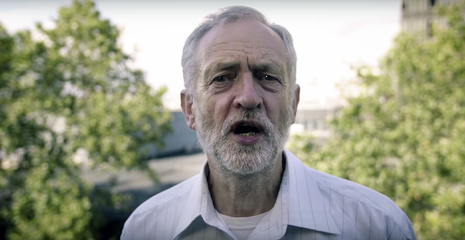Analysis: Divided we stand?
Political Editor Joe Robinson dissects what the Labour Party’s divisions mean for CULC

While it is almost universally acknowledged that the Labour Party is in crisis, disagreement remains concerning its causes and extent. Those on the left, observing the resounding mandate Corbyn has won, cite dissent and disunity as the causes of Labour’s woes, chief among them the actions of the Parliamentary Labour Party and its so-called ‘coup’ in June. By contrast, more centrist members express concerns about Corbyn’s political approach and the political apparatus being erected around him, particularly Momentum’s behaviour and the threats to deselect moderate MPs with which its members have been associated.
Labour is, by virtually every measure, further from power than it has been for over three decades, and deep structural issues remain in a party where the assertion of parliamentary control is impotent in view of the dominance of a near-unfiltered discourse of member sovereignty.
The threat to local Labour groups is that the national party’s melodrama threatens to overtake more local concerns: that, to amend the former US House of Representatives Speaker Tip O’Neill’s maxim, all politics is now national. For the Cambridge Universities Labour Club (CULC), this means remaining a broad church open to and inclusive of the broadest possible spectrum of views while retaining its capacity to campaign effectively.
Thankfully, CULC is remarkable among Labour clubs insofar as its inclusiveness and relative political balance are concerned: though it has its share of die-hard Corbynistas and convinced Blairites, the bulk of CULC’s membership resides in the soft-left or centre of the party. Factionalism has not, and appears unlikely to, rear its ugly head, and it remains a credit to CULC’s members that it has not gone the way of, say, its Oxonian counterpart.
That is not to say, however, that tense disagreements have not taken place. In the Cambridge constituency, a Unite-affiliated Twitter account called for the deselection of moderate city councillors over the summer, and Councillor David Baigent’s advocacy for Corbyn during the leadership contest rubbed CULC members up the wrong way when he appeared to associate Labour Club members, and Owen Smith, with an agenda favouring the so-called ‘one per cent’.
Nevertheless, while the national party has torn itself asunder CULC has hitherto avoided major spats and controversy. Its campaigning chops, particularly in view of a potential early election next year, depend on its continued capacity to put aside ideology and work together. Daniel Zeichner’s job could well depend on it.
 Comment / Plastic pubs: the problem with Cambridge alehouses 5 January 2026
Comment / Plastic pubs: the problem with Cambridge alehouses 5 January 2026 News / Uni-linked firms rank among Cambridgeshire’s largest7 January 2026
News / Uni-linked firms rank among Cambridgeshire’s largest7 January 2026 News / New movement ‘Cambridge is Chopped’ launched to fight against hate crime7 January 2026
News / New movement ‘Cambridge is Chopped’ launched to fight against hate crime7 January 2026 News / SU stops offering student discounts8 January 2026
News / SU stops offering student discounts8 January 2026 News / Cambridge businesses concerned infrastructure delays will hurt growth5 January 2026
News / Cambridge businesses concerned infrastructure delays will hurt growth5 January 2026









